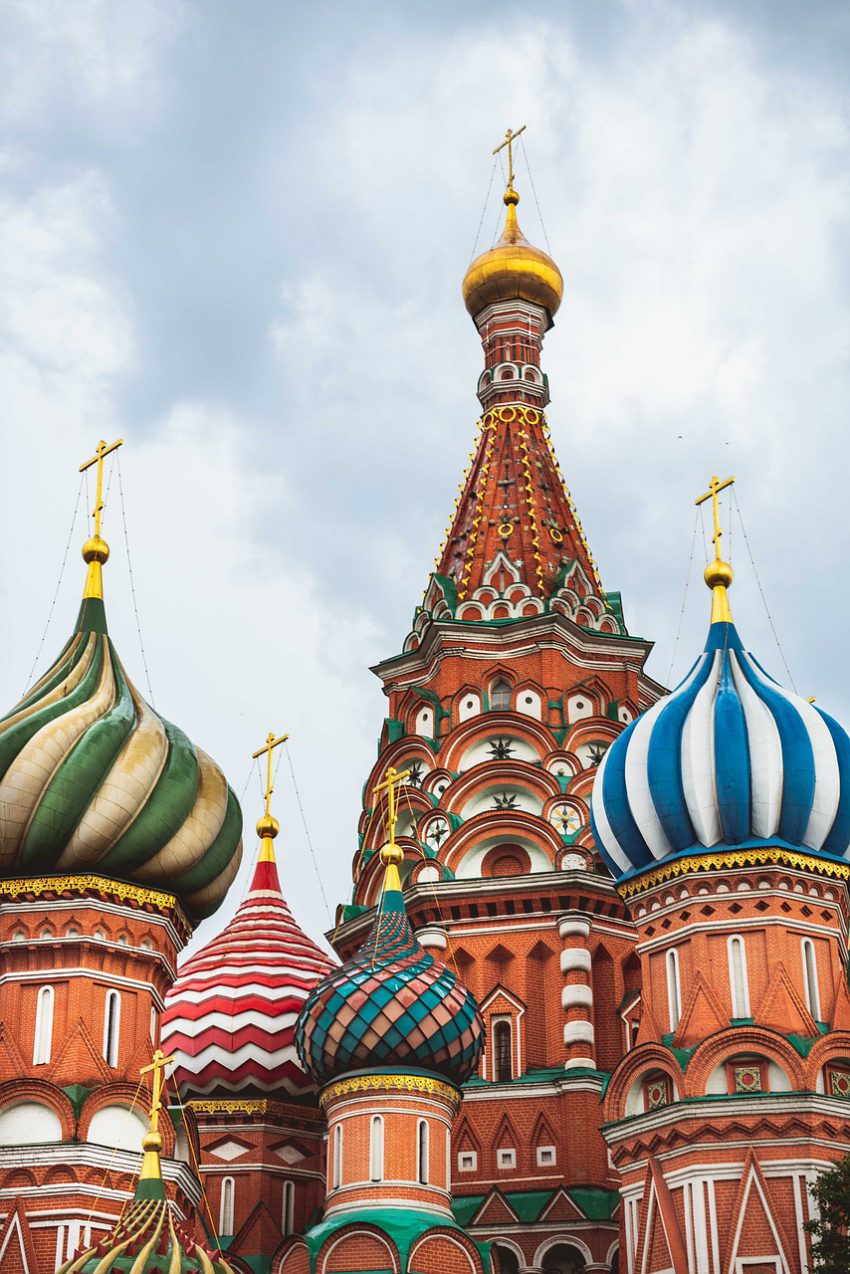The Rev. Dr. John Burgess, professor of systematic theology, was awarded a Fulbright Fellowship and a Luce Fellowship. These awards made it possible for him to return to Russia to teach at St. Tikhon’s Orthodox Humanitarian University and research the Orthodox Church’s resurgence in the country. He and his family regularly write about their experiences to their blog. Find below a recent entry.
The run up to the holidays is in full swing here in Moscow just like it is in the States, with the difference that the family gift-giving, good food celebration falls on New Year’s Eve/Day and the Orthodox celebration of the Nativity (Christmas) is a largely religious celebration on the 7th of January. And not unlike Christmas in the U.S. it is a season of mixed messages and contradictions.
Stores and shops are decorated, large artificial Christmas trees stand in front of shopping centers and in parks and squares around the city, ads everywhere trumpet the superiority and terrific price of their product and, now and again, you catch snippets of “Jingle Bells,” and “Santa Claus is Coming to Town,” (Springsteen version). And, based on a non-scientific poll taken at the local mall, Russians are out there looking for the perfect gifts and stocking up on chocolate and champagne.
Meanwhile this is a season of fasting and repentance for the Orthodox. When I brought the topic up in class earlier in the month one of my students let out a big, “Hah!,” followed by “No one is fasting.” After some discussion it was conceded that at least some students in the dorm were fasting and as far as I can tell our Orthodox friends and colleagues in the Philology faculty are observing the fast. But my student’s comment actually hit the nail on the head. The percentage of Orthodox that observe the Advent fast is small so that, in the end the actual number of people fasting is miniscule relative to the population. Another non-scientific poll supports this. On a recent trip to our local Ashan hypermarket and Ikea it was clear that people’s eating patterns have not changed. The women in front of me at the check-out at Ashan had carts loaded with meat, sausage, cheese, eggs, and milk products (things that you don’t eat during a fast) and I was almost knocked over by a woman at Ikea who had been to the snack bar and had her hands full of sausages in buns (looked like she was feeding a crew).
All of this is further complicated by the fact that the New Year’s celebration falls in the middle of the fast, so how do you observe the holiday without breaking the fast? “Christmas” without eggnog, coffee cake, or whatever else is traditional in your family? Hard to imagine.
The Orthodox Church would like to claim the New Year’s celebration as its own. To that end one of the parishes that we attend will celebrate the liturgy on New Year’s Eve beginning at 11:00 p.m. and ending at 1:00 a.m. It may be that as the priest intones the words “Take, eat. This is my body which is broken for you for the forgiveness of sins,” he will be drowned out by the fireworks going off all around as people greet the new year. Another reminder that the Orthodox Church is in an uphill battle in its attempt to shape Russian culture for the future.
Finally, when everyone is tired of the long holiday break, spending too much money, watching too much T.V., and over-eating, the Orthodox will quietly celebrate the Nativity with all-night services, festive meals, and parish celebrations. It will be not unlike that night in Bethlehem when people jostled for space on the floor of the inn and worried about getting their animals fed, the kids quieted down and registering in the census, while unbeknownst to them God came into the world and changed the course of history.
May all of us spend less and consume less. May we instead fix our affection on our Lord through worship. Let us be filled with the abundance that can only be had through Jesus Christ.
Merry Christmas and Happy New Year!
Dr. John Burgess, James Henry Snowden Professor of Systematic Theology

